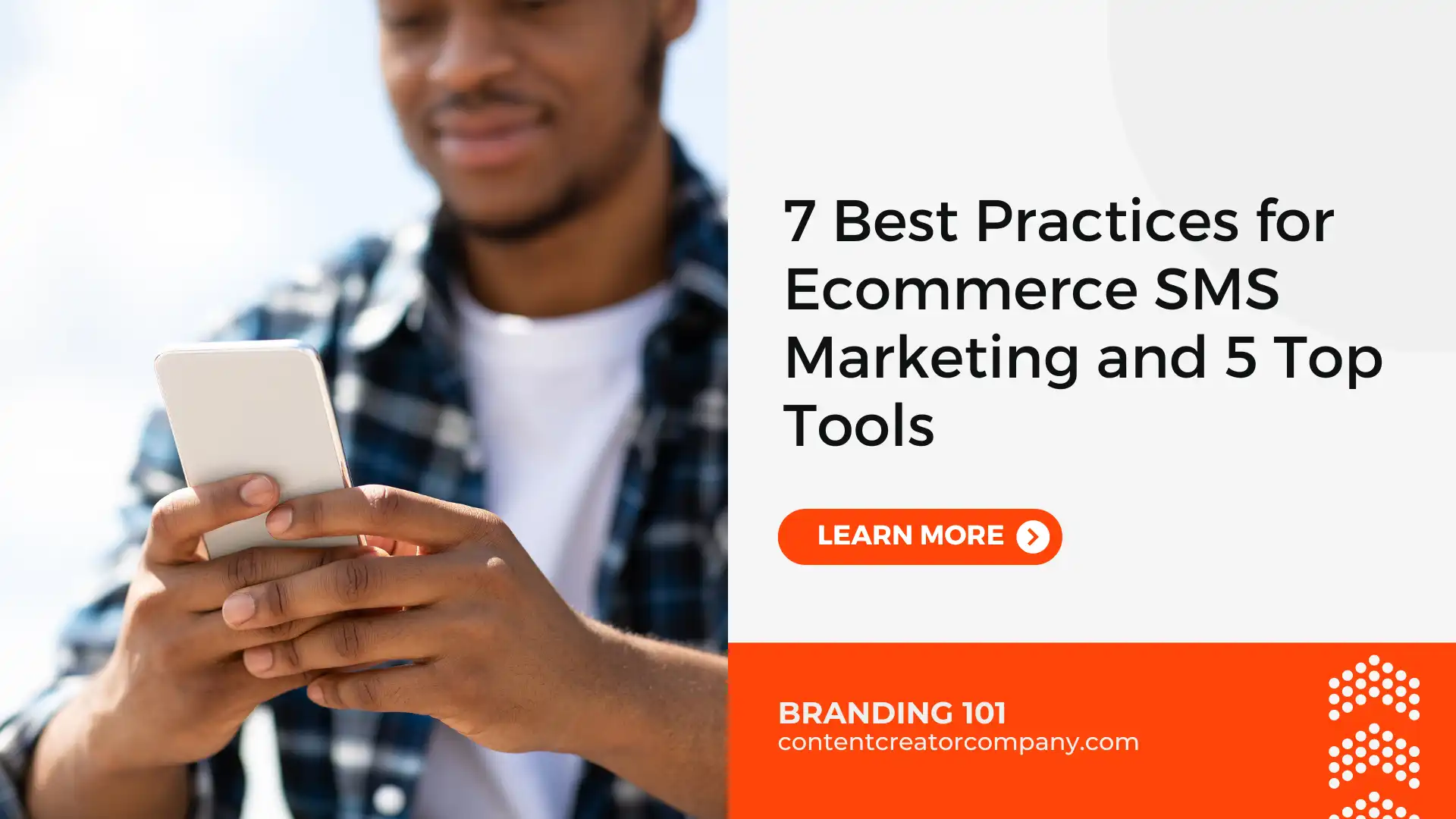
In the ever-evolving world of B2B marketing, staying ahead of the curve is crucial for businesses to remain competitive and relevant. As we are in 2024, the landscape is shifting rapidly, with new trends emerging and existing ones gaining momentum. To thrive in this dynamic environment, it’s essential to anticipate and prepare for the future of B2B marketing.
Table of Contents
What is B2B Marketing?
B2B marketing, short for business-to-business marketing, refers to the strategies and tactics employed by companies to promote and sell their products or services to other businesses. Unlike B2C (business-to-consumer) marketing, which targets individual consumers, B2B marketing focuses on building relationships with decision-makers and influencers within other organizations.
While B2B and B2C marketing share some fundamental principles, there are distinct differences that set them apart. B2B marketing typically involves longer sales cycles, more complex decision-making processes, and higher-value transactions. Additionally, B2B marketing often requires a deeper understanding of the target industry, business challenges, and decision-making criteria.
Effective B2B marketing plays a crucial role in driving business growth by attracting and retaining customers, building brand awareness, and positioning a company as a trusted partner. By anticipating and adapting to emerging trends, businesses can stay ahead of the competition and create a competitive advantage in the B2B marketplace.
The Importance of Staying Ahead of B2B Marketing Trends
Today, we must be advanced, and being aware of and adapting to the latest marketing trends can mean the difference between success and failure. Companies that fail to keep up risk being left behind, while those that anticipate and embrace new trends can gain a significant competitive advantage.
The B2B marketing landscape is constantly evolving, driven by advancements in technology, shifts in consumer behavior, and changes in market dynamics. As we’re still at the beginning of 2024, several key trends are poised to shape the way businesses connect with their target audiences and drive growth.

1. Personalization and Hyper-Targeting
Account-Based Marketing (ABM) is a strategic approach that focuses on identifying and targeting specific high-value accounts. By aligning marketing and sales efforts around these accounts, businesses can deliver highly personalized and relevant messaging, increasing the likelihood of success.
With the vast amount of data available, businesses can leverage artificial intelligence (AI) and machine learning to gain deeper insights into their target audiences. This enables them to create highly targeted campaigns and personalized experiences that resonate with specific buyer personas and account profiles.
Gone are the days of one-size-fits-all marketing campaigns. In 2024, successful B2B marketers will need to create personalized buyer journeys that cater to the unique needs, preferences, and pain points of their target accounts. This involves delivering relevant content, offers, and experiences at every stage of the buying process.
2. Omnichannel Marketing and Customer Experience
In the age of digital connectivity, customers expect a consistent and cohesive experience across all touchpoints. Omnichannel marketing involves seamlessly integrating various channels, such as websites, email, social media, and even offline events, to create a unified and memorable brand experience.
Building on the concept of omnichannel marketing, businesses must prioritize delivering consistent and memorable experiences across all channels. This involves understanding customer preferences, behaviors, and journeys, and tailoring interactions accordingly.
As new channels and technologies emerge, such as voice assistants, augmented reality (AR), and virtual reality (VR), savvy B2B marketers will need to explore and leverage these platforms to engage with their target audiences in innovative and compelling ways.
3. Content Marketing and Thought Leadership
Content marketing will remain a cornerstone of B2B marketing strategies in 2024. High-quality, informative, and engaging content will be essential for attracting and nurturing leads, building brand awareness, and establishing thought leadership.
To stand out in a crowded content landscape, businesses will need to embrace interactive and immersive content formats, such as interactive videos, augmented reality experiences, and gamified content. These formats offer a more engaging and memorable way to connect with audiences.
In the B2B space, positioning your brand as a thought leader is crucial for building trust and credibility. By consistently producing high-quality, insightful content that demonstrates expertise and thought leadership, businesses can differentiate themselves from competitors and attract and retain customers.
4. Influencer Marketing and Advocacy
While influencer marketing has traditionally been associated with B2C campaigns, it’s becoming increasingly important in the B2B space. By partnering with industry influencers, subject matter experts, and thought leaders, businesses can tap into their established audiences and leverage their credibility.
In addition to external influencers, businesses should also leverage their own employees as brand advocates. Encouraging and empowering employees to share company content and insights on social media can amplify reach and build trust with potential customers.
Both influencer marketing and employee advocacy can be powerful tools for building trust and credibility with target audiences. By associating with respected voices and leveraging the authenticity of employee voices, businesses can establish themselves as trustworthy and credible partners.
5. Data-Driven Marketing and Analytics
In today’s data-rich environment, successful B2B marketers must embrace data-driven decision-making. By collecting and analyzing various data points, such as website analytics, lead behavior, and campaign performance, businesses can make informed decisions and optimize their marketing strategies for better results.
Artificial intelligence (AI) and machine learning are rapidly transforming the way businesses approach marketing. By leveraging these technologies, marketers can gain deeper insights, automate processes, and deliver more personalized and effective campaigns.
Continuously measuring and optimizing marketing efforts is essential for maximizing ROI and driving growth. By analyzing data and using advanced analytics tools, businesses can identify areas for improvement, test different strategies, and refine their approach for better results.
6. Sustainability and Corporate Social Responsibility
As consumers become increasingly conscious of environmental and social issues, sustainability and corporate social responsibility (CSR) are becoming crucial considerations for businesses. In 2024, B2B marketers will need to align their efforts with their company’s sustainability and CSR initiatives to resonate with customers and stakeholders.
Beyond just promoting sustainability and CSR initiatives, B2B marketers must ensure that their marketing efforts are aligned with their company’s values and commitments. This means incorporating sustainable practices into campaigns, promoting ethical business practices, and demonstrating a genuine commitment to making a positive impact.
Effective marketing in 2024 will involve engaging customers and stakeholders in sustainability and CSR efforts. This can include initiatives such as eco-friendly product promotions, cause-related marketing campaigns, and partnerships with non-profit organizations or social enterprises.
Conclusion of Key B2B Marketing Trends in 2024

As we look ahead to 2024, the B2B marketing landscape is poised for significant changes and advancements. Key trends include personalization and hyper-targeting, omnichannel marketing and customer experience, content marketing and thought leadership, influencer marketing and advocacy, data-driven marketing and analytics, and sustainability and corporate social responsibility.
To succeed in this rapidly evolving environment, businesses must embrace adaptability and continuous learning. By staying ahead of emerging trends, leveraging new technologies, and continuously optimizing their strategies, B2B marketers can position themselves for success and drive growth in 2024 and beyond.
FAQs B2B Marketing Trends
1. What is Account-Based Marketing (ABM), and why is it important?
Account-Based Marketing (ABM) is a strategic approach that focuses on identifying and targeting specific high-value accounts. Instead of casting a wide net, ABM involves aligning marketing and sales efforts around these accounts to deliver highly personalized and relevant messaging.
This approach is important because it allows businesses to efficiently allocate resources and efforts towards the most promising opportunities, increasing the likelihood of success.
2. How can businesses leverage data and AI for precise targeting?
Businesses can leverage data and AI for precise targeting by collecting and analyzing various data points, such as customer demographics, behavior patterns, and preferences.
AI and machine learning algorithms can then process this data to identify patterns, predict behaviors, and generate insights that can be used to create highly targeted campaigns and personalized experiences for specific buyer personas and account profiles.
3. What is the importance of omnichannel marketing in B2B?
Omnichannel marketing is crucial in B2B because it ensures a consistent and cohesive experience for customers across all touchpoints. In the age of digital connectivity, customers expect seamless interactions regardless of the channel they are using.
By integrating various channels, such as websites, email, social media, and offline events, businesses can create a unified and memorable brand experience that resonates with their target audiences.
4. Why is content marketing and thought leadership important in B2B marketing?
Content marketing and thought leadership are vital in B2B marketing because they help businesses attract and nurture leads, build brand awareness, and establish credibility and trust with potential customers. High-quality, informative, and engaging content positions a company as an expert in their field, differentiating them from competitors and making them more attractive to potential buyers.
5. How can businesses leverage influencer marketing in B2B?
Businesses can leverage influencer marketing in B2B by partnering with industry influencers, subject matter experts, and thought leaders. These influencers have established audiences and credibility within their respective fields, making them valuable partners for promoting products, services, or thought leadership content.
By collaborating with influencers, businesses can tap into their established audiences and leverage their credibility to build trust and credibility with potential customers.
6. What role do data-driven marketing and analytics play in B2B marketing?
Data-driven marketing and analytics play a crucial role in B2B marketing by enabling businesses to make informed decisions and optimize their strategies for better results.
By collecting and analyzing various data points, such as website analytics, lead behavior, and campaign performance, businesses can gain insights into what works and what doesn’t, identify areas for improvement, and refine their approach accordingly. Additionally, leveraging AI and machine learning can further enhance data-driven decision-making and personalization.
7. Why are sustainability and corporate social responsibility important in B2B marketing?
Sustainability and corporate social responsibility (CSR) are becoming increasingly important in B2B marketing as consumers become more conscious of environmental and social issues.
Aligning marketing efforts with a company’s sustainability and CSR initiatives can help businesses resonate with customers and stakeholders who value these commitments. Additionally, incorporating sustainable practices and promoting ethical business practices can differentiate a brand and build trust with potential customers.
8. How can businesses engage customers and stakeholders in sustainability and CSR efforts?
Businesses can engage customers and stakeholders in sustainability and CSR efforts through various initiatives, such as eco-friendly product promotions, cause-related marketing campaigns, and partnerships with non-profit organizations or social enterprises.
These efforts not only demonstrate a commitment to making a positive impact but also provide opportunities for customers and stakeholders to actively participate and contribute to these causes, fostering a deeper connection with the brand.
Want to Stay Ahead of the Curve in the Ever-Evolving World of B2B Marketing?
Our expert team not only keeps up with the latest B2B marketing trends but also helps you leverage them to propel your brand to new heights. From personalized content to interactive experiences, we understand the importance of staying relevant in a competitive landscape.
But that’s not all – our video brand identity services add a dynamic touch to your marketing strategy, ensuring your brand stands out amidst the noise. Whether it’s crafting engaging video content or refining your brand’s visual identity, we’ve got you covered.
Don’t miss out on the opportunity to lead the pack in B2B marketing – partner with us and let’s elevate your brand to new levels of success. Contact us today to discover how our services can help you stay ahead of B2B marketing trends and make a lasting impact in your industry.





